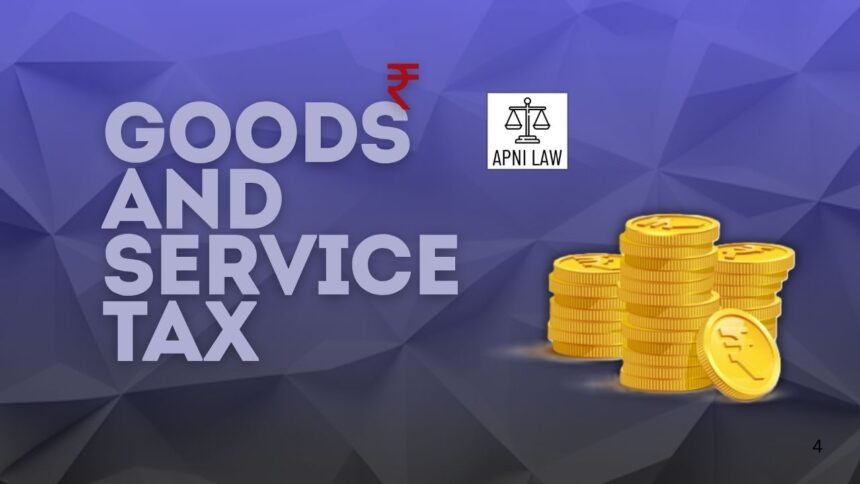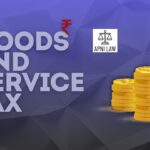Introduction
Section 2 of the GST Act, 2017 provides more than 120 essential definitions that help decode the language of GST law. These definitions are crucial for businesses, legal professionals, and taxpayers to understand the scope, structure, and compliance obligations under GST. This article rephrases and summarizes these terms in simple language to make the legal text more accessible and SEO-friendly.
What Are The Definitions under Section 2 Of GST Act
The term “actionable claim” retains the same meaning as defined in the Transfer of Property Act, 1882. The “address of delivery” refers to the delivery location listed on the tax invoice, while the “address on record” means the recipient’s address available in the supplier’s records. An “adjudicating authority” is anyone authorized to make decisions under the Act, except for authorities like the CBIC, appellate authorities, and certain tribunals.
Agent
An “agent” is someone who handles the supply or receipt of goods or services on behalf of another person. “Aggregate turnover” includes all taxable supplies, exempt supplies, exports, and inter-state supplies under one PAN but excludes certain taxes and inward supplies taxed under reverse charge. An “agriculturist” is an individual or HUF engaged in land cultivation by self, family, or hired labor. The term “Appellate Authority” refers to the body handling appeals under Section 107, while the “Appellate Tribunal” is set up under Section 109.
The “appointed day” is when the GST Act officially comes into force. “Assessment” means determining tax liability and includes various types of assessments like self or provisional. “Associated enterprises” carry the same definition as in the Income Tax Act. “Audit” involves examining records to verify the correctness of turnover, taxes, refunds, and ITC claims. An “authorized bank” is designated by the government to collect taxes. “Authorized representative” is defined under Section 116, and the “Board” refers to the CBIC.
The definition of “business” covers trade, commerce, manufacture, or any similar activity, whether for profit or not, and includes activities by clubs, associations, governments, and race clubs. “Capital goods” are assets capitalized in books and used for business. A “casual taxable person” undertakes occasional taxable transactions in a state or UT where they have no fixed place of business. “Central tax” refers to GST levied under Section 9, while “cess” relates to the compensation law for states.
Chartered Accounting
A “chartered accountant” is defined under the Chartered Accountants Act, 1949. The “Commissioner” is appointed under Section 3 or IGST Act. The “common portal” is the GST electronic platform. “Common working days” exclude gazetted holidays. A “company secretary” and “cost accountant” are defined under their respective Acts. The “Council” refers to the GST Council under Article 279A of the Constitution. “Credit note” and “debit note” are documents issued under Section 34. “Deemed exports” are specific supplies notified under Section 147.
“Document” includes all physical and electronic records. “Drawback” means the rebate of taxes on inputs used in export goods. “Electronic cash ledger” and “electronic credit ledger” refer to ledgers under Section 49. “Electronic commerce” covers supply through digital platforms, and the operator is any person managing such a platform. “Exempt supply” includes goods or services that attract nil tax or are fully exempt. “Existing law” covers pre-GST tax laws. “Family” includes spouse, children, and dependents.
A “fixed establishment” has a permanent human and technical presence for receiving or supplying services. The “Fund” refers to the Consumer Welfare Fund under Section 57. “Goods” include all movable items except money and securities, but include growing crops and actionable claims. “Government” refers to the Central Government. The “Goods and Services Tax (Compensation to States) Act” is the 2017 law for compensating states. A “GST practitioner” is approved under Section 48 to represent taxpayers. “India” includes the land, water bodies, and airspace under Indian jurisdiction.
IGST
The “Integrated GST Act” is the 2017 Act on inter-state GST. “Integrated tax” is the tax levied under that Act. “Input” and “input service” refer to goods or services used for business. An “Input Service Distributor” is an office that distributes input tax credit among branches. “Input tax” covers taxes paid on supplies and imports but excludes composition taxes. “Input tax credit” refers to the credit for taxes paid on inputs.
“Intra-State supply” of goods or services is as per the IGST Act. A “tax invoice” is defined in Section 31. “Inward supply” means receiving goods or services. “Job work” is processing goods for another registered person. “Local authority” includes panchayats, municipalities, and development boards. The “location of recipient or supplier of services” depends on business and fixed establishments. “Manufacture” is any process creating a new product.
“Market value” is the full price a buyer would pay for similar goods or services in an arm’s-length transaction. “Mixed supply” includes unrelated items sold together for one price. “Money” includes legal tender and instruments except for those held for collection purposes. “Motor vehicle” follows the Motor Vehicles Act definition. A “non-resident taxable person” supplies goods or services occasionally without a fixed place of business in India. A “non-taxable supply” is not liable to GST.
“Notification” means an official publication in the Gazette. “Online gaming” and “online money gaming” include internet-based games involving monetary stakes or virtual digital assets. “Other territory” refers to areas outside states and defined union territories. “Output tax” is GST collected by the supplier. “Outward supply” means goods or services provided in business activities. A “person” includes individuals, companies, firms, government bodies, and artificial entities.
Location
“Place of business” refers to where a person stores goods, conducts business, or maintains books. “Place of supply” is defined under the IGST Act. “Prescribed” means specified in the rules. A “principal” is represented by an agent. “Principal place of business” is listed in the registration certificate. “Principal supply” is the main supply in a composite transaction. A “proper officer” is assigned specific functions by the Commissioner.
A “quarter” is a three-month calendar period ending in March, June, September, or December. A “recipient” is the person receiving goods or services, with or without consideration. A “registered person” is registered under Section 25. “Regulations” are rules made by the Board. “Removal” of goods means dispatch or collection. A “return” is a GST return required under the Act. “Reverse charge” shifts the tax liability to the recipient. A “Revisional Authority” is empowered under Section 108.
The “Schedule” refers to the annexed schedules of the Act. “Securities” follow the meaning in the Securities Contracts (Regulation) Act. “Services” include all activities except goods, money, and securities and cover currency conversion and brokerage services. “Specified actionable claim” covers betting, casinos, gambling, racing, lottery, and online money gaming. A “State” includes UTs with legislatures. “State tax” is GST levied under the SGST Act.
The “supplier” is the person who provides goods or services. Organizers of actionable claim-based activities like lotteries or online games are deemed suppliers under specific conditions. A “tax period” is the period for filing returns. A “taxable person” is registered or liable to be registered under Sections 22 or 24. A “taxable supply” is one that is subject to GST. The “taxable territory” is the area where GST laws apply. “Telecommunication service” includes all electronic transmission services.
SGST Act
The “State GST Act” refers to each state’s individual GST legislation. “Turnover in State or Union Territory” includes all taxable and exempt supplies, exports, and inter-state supplies but excludes taxes. “Usual place of residence” depends on whether the person is an individual or an entity. “Union territory” includes Andaman & Nicobar Islands, Lakshadweep, Dadra and Nagar Haveli and Daman and Diu, Chandigarh, and Ladakh, each treated as a separate unit for GST. “Union territory tax” is GST levied under the UTGST Act.
The “valid return” is one where self-assessed tax is fully paid. “Virtual digital asset” matches the definition under the Income Tax Act. A “voucher” is any instrument redeemable against a specific supply. A “works contract” involves construction or similar services where property in goods is transferred. Lastly, any word not defined in this Act but defined in the IGST Act, UTGST Act, or Compensation to States Act will carry the same meaning.
Conclusion
Section 2 of the GST Act builds the foundation for the entire GST framework by clearly defining key terms. Understanding these definitions is vital for correct tax compliance, accurate invoicing, legal clarity, and efficient business operations. Mastering this section ensures stakeholders are aligned with the expectations and legal terminology used throughout the GST regime in India.







